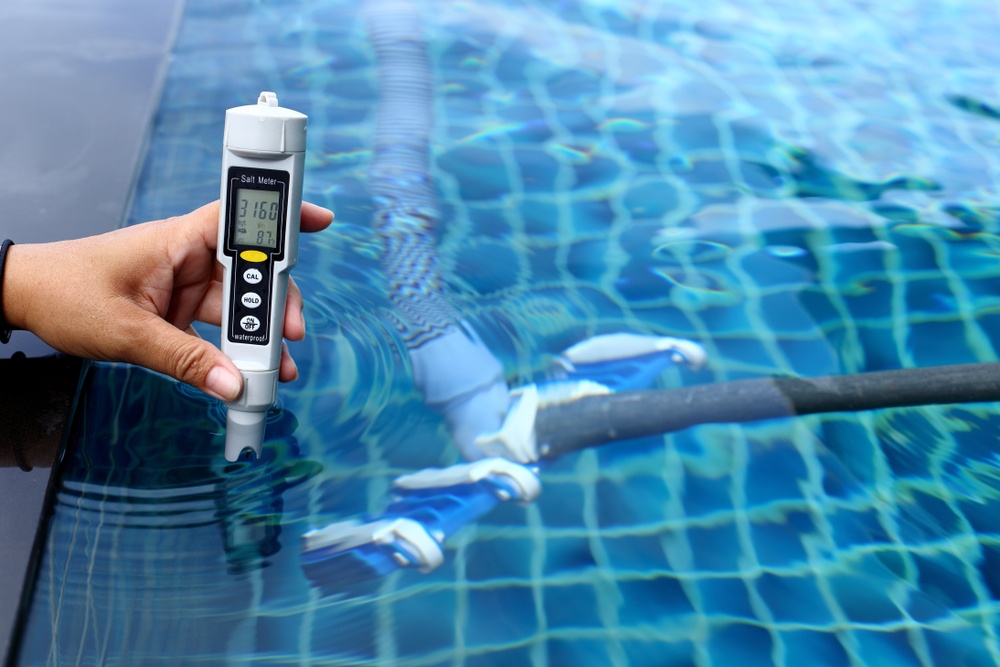
Why Maintaining Alkalinity in Pools Matters
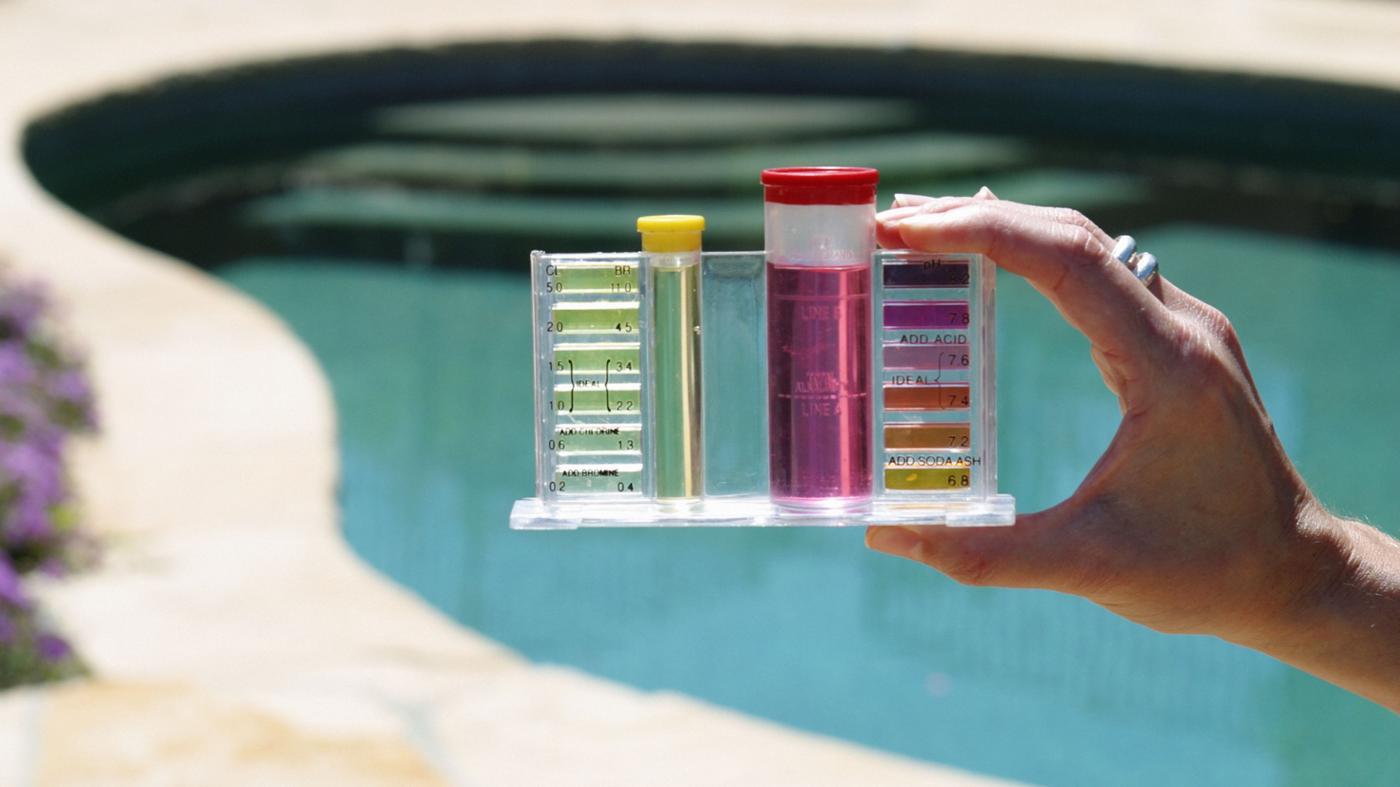
Understanding the significance of alkalinity in pools is fundamental to maintaining a healthy swimming environment. Alkalinity, primarily measured as Total Alkalinity, acts as a buffer that stabilizes pH levels in pool water. This stability is crucial for the effectiveness of chlorine, ensuring it works efficiently to keep the water clear and free of harmful bacteria. Proper alkalinity levels also prevent damage to pool equipment and surfaces by avoiding corrosive conditions that can arise from pH imbalances.
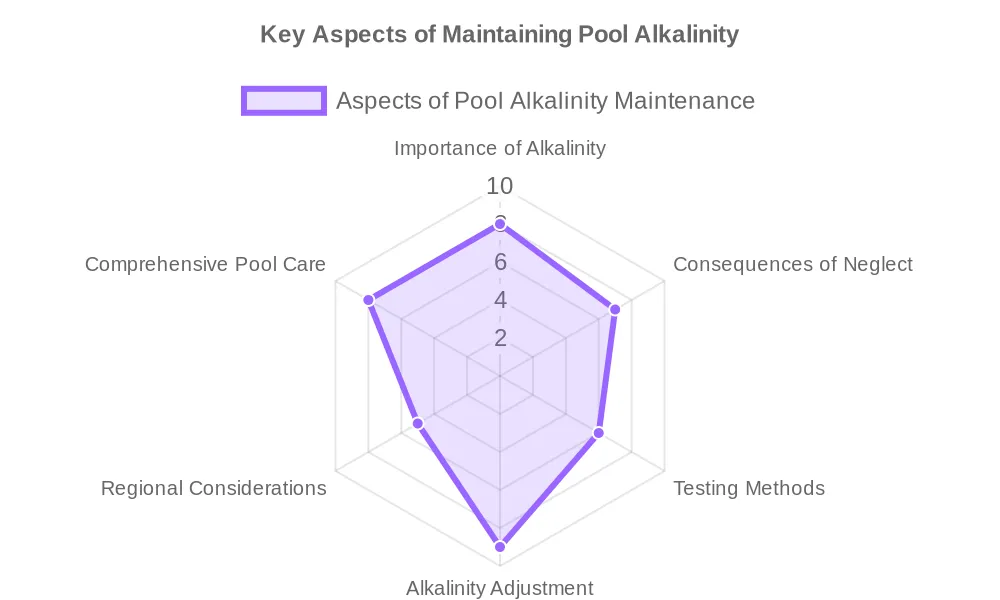
Latest


How Do You Properly Clean a Fiberglass Pool in 2024?
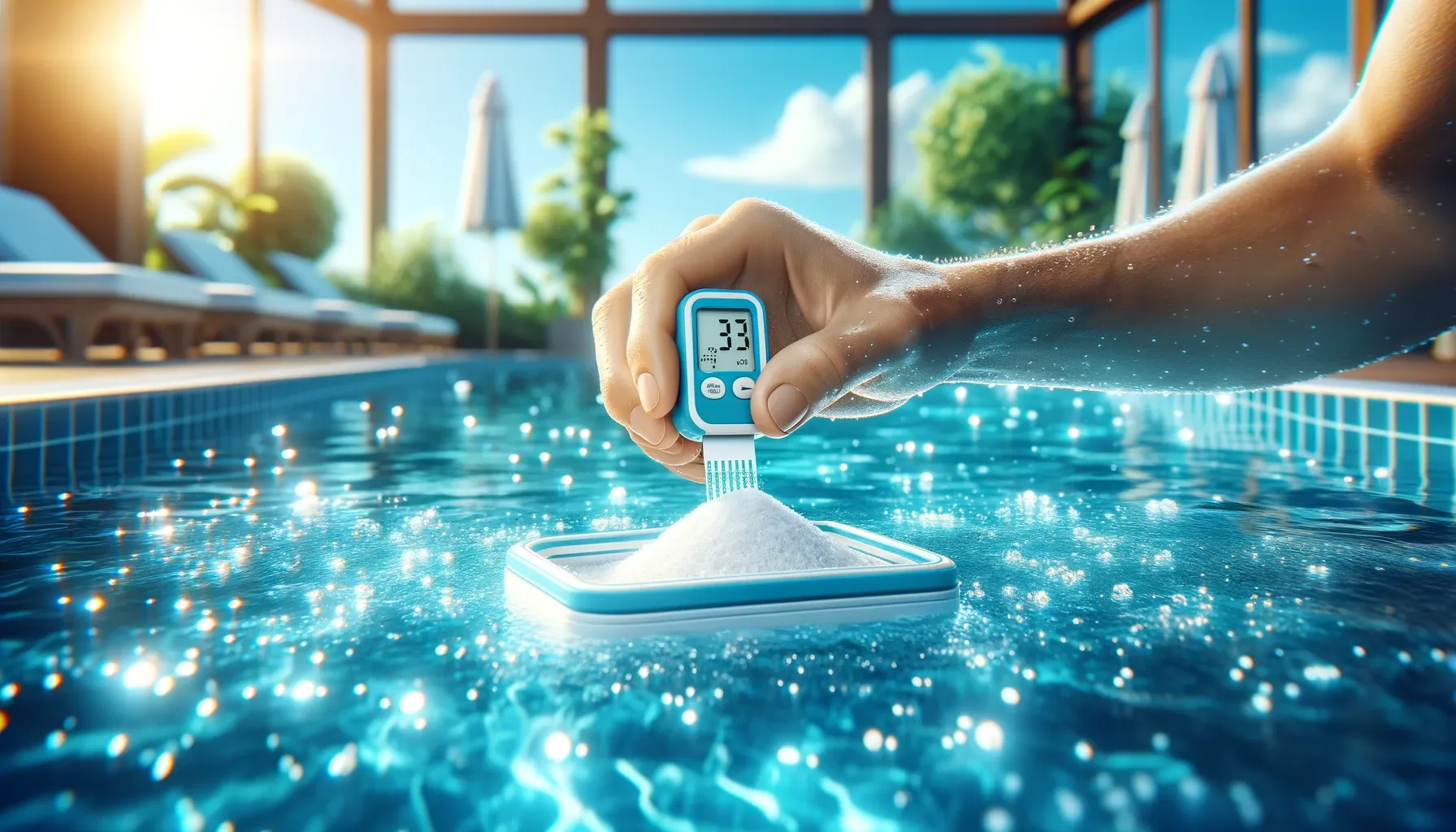
How Do You Know If Your Pool Needs Salt?
Categories
Consequences of Neglecting Alkalinity
Inadequate attention to pool alkalinity maintenance can lead to several problems. Low alkalinity levels often result in a decrease in pH, making the water acidic. This acidity can lead to discomfort for swimmers, such as eye irritation, and can also accelerate the wear and tear on pool surfaces and equipment. Furthermore, it can compromise the effectiveness of chlorine, leading to unsanitary conditions.
Step-by-Step Guide to Adjusting Pool Alkalinity
Accurate Testing: The Foundation of Alkalinity Adjustment
Effective pool care begins with accurate testing. To assess the alkalinity level, you can use:
- Test Strips: Convenient for quick checks, these strips change color based on the alkalinity level of the water.
- Liquid Test Kits: Offering greater accuracy, these kits involve adding a specific number of reagent drops to a water sample and comparing the resulting color against a chart.
Utilizing Baking Soda for Alkalinity Control
One of the most effective and safe methods to raise pool alkalinity is the use of baking soda, known chemically as sodium bicarbonate. The general rule for baking soda pool use is to add about 1.5 lbs per 10,000 gallons of pool water, which increases the alkalinity by around 10 parts per million (ppm). It’s crucial to add the baking soda gradually, monitoring the changes in alkalinity to avoid overcorrection.
Regional Considerations in Pool Alkalinity Adjustment
Different regions, such as Virginia, may have unique water qualities that affect pool maintenance. Virginian pool care, for example, might require specific adjustments to account for local water characteristics, ensuring optimal alkalinity and overall water balance.
Advanced Strategies for Comprehensive Pool Care
Maintaining the Perfect Pool Water Balance
Achieving a harmonious balance in your pool’s water chemistry goes beyond alkalinity. Regularly monitor and adjust other key parameters, including pH levels, chlorine concentration, and calcium hardness, to ensure a well-maintained and inviting pool.
Embracing DIY Pool Maintenance for Optimal Results
Engaging in regular DIY pool maintenance activities such as cleaning, skimming, and vacuuming complements your chemical management efforts. These practices not only enhance the appearance of your pool but also support the effectiveness of chemical treatments.
Frequently Asked Questions
Can baking soda be used to increase pool alkalinity?
Yes, baking soda is a widely accepted and safe method to raise alkalinity levels in pool water.
How often should I test my pool’s alkalinity?
Testing should be conducted at least weekly, with more frequent checks following heavy usage or significant weather events.
What is the ideal alkalinity range for a pool?
The optimal alkalinity level for pool water typically ranges between 80-120 ppm.
How does low alkalinity affect pool pH?
Low alkalinity can lead to a drop in pH levels, creating acidic conditions that are harsh on swimmers and can damage pool equipment.
Is adjusting alkalinity necessary in saltwater pools?
Yes, maintaining proper alkalinity is crucial in saltwater pools to support the effectiveness of salt chlorine generators and maintain water balance.
By adhering to these alkalinity management strategies and maintaining a vigilant eye on your pool’s chemical balance, you can ensure a healthy, clean, and enjoyable swimming environment. Regular care and attention are the keys to preventing common pool issues and maximizing the pleasure of your aquatic oasis.
Latest
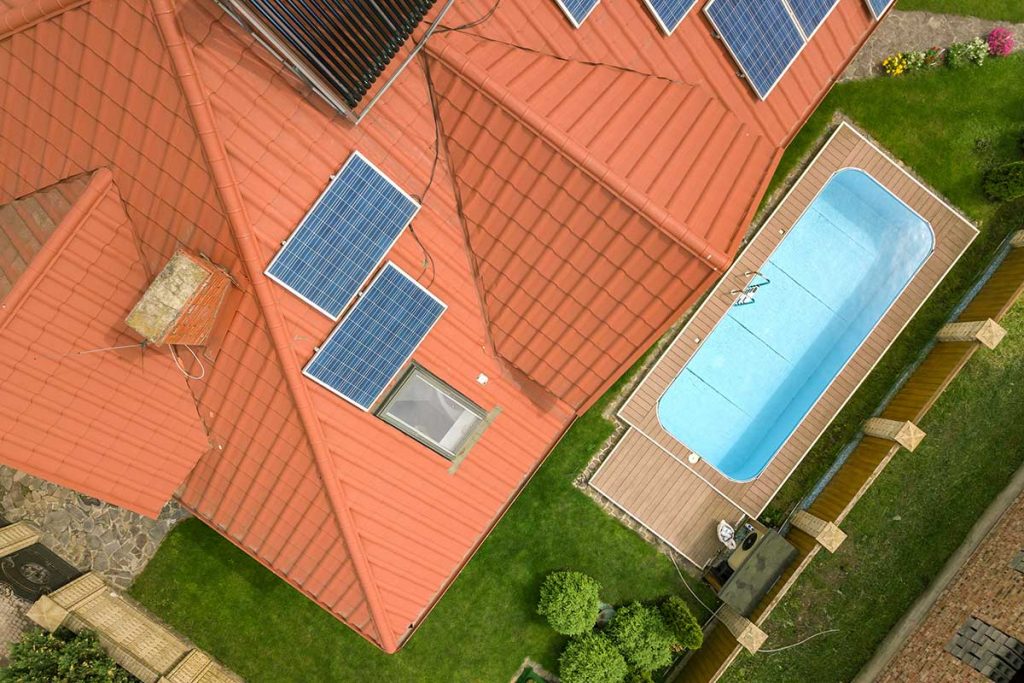
Solar Pool Covers: The Secret to a Warmer, Cleaner Pool
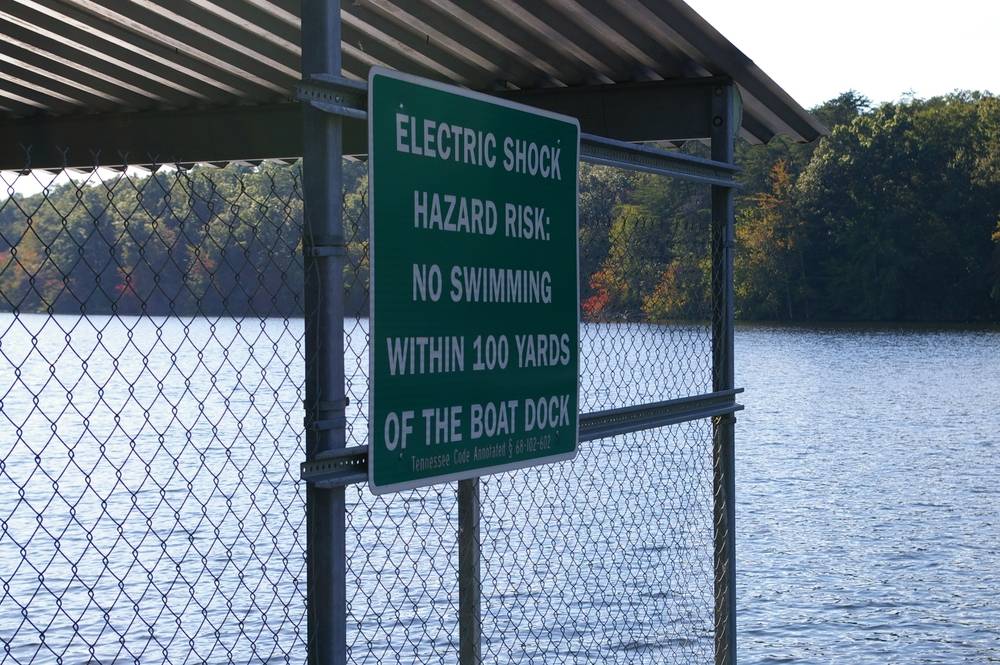
Think Your Pool is Safe? Electrical Hazards You Didn’t Know!

The Ultimate Guide to Gunite Pool Resurfacing
Categories
YOU'RE NOT IN THIS ALONE
We are with you every splash of the way
Need a pool fix or looking for an upgrade? We’re just one click away to help with all your pool needs.

